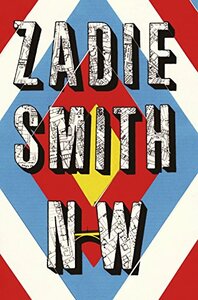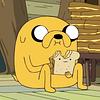You need to sign in or sign up before continuing.
Take a photo of a barcode or cover
challenging
dark
reflective
slow-paced
Plot or Character Driven:
Character
Strong character development:
Complicated
Loveable characters:
Complicated
Diverse cast of characters:
Yes
Flaws of characters a main focus:
Yes
like "on beauty," which i like far more than "white teeth," i may re-rate this one with a re-read. i really liked it but felt let down by the ending. then again, i read the last few pages during a 2am bout with insomnia, so perhaps i was a bit fuzzy.
medium-paced
Plot or Character Driven:
Character
Strong character development:
Yes
Loveable characters:
Yes
Diverse cast of characters:
Yes
Flaws of characters a main focus:
Yes
Really, really excellent.
Unfortunately, not great for reading on public transit. This book requires calm, quiet, focus.
I predict that 20 years from now, Zadie Smith will be popping up on more and more AP Lit syllabi. She is a master in form, inventive, and terribly funny. I've never seen an author use narrative structure quite as she does.
Unfortunately, not great for reading on public transit. This book requires calm, quiet, focus.
I predict that 20 years from now, Zadie Smith will be popping up on more and more AP Lit syllabi. She is a master in form, inventive, and terribly funny. I've never seen an author use narrative structure quite as she does.
challenging
dark
reflective
medium-paced
Plot or Character Driven:
Character
Strong character development:
Complicated
Loveable characters:
Complicated
Diverse cast of characters:
Yes
Flaws of characters a main focus:
Yes
I don’t know how to review this. I tried starting this a while back and couldn’t get into it. This time, I got into it but I don’t really know what it was. I don’t think I understood what Smith was trying to do. I think she’s a brilliant writer but I just didn’t get this.
This is a review just for my own records. I had to give up this book partly because I was struggling and partly because I had to return it to the library(!).
I was initially excited to read Smith's new book as it I enjoyed "On beauty" quite a bit and I think that Zadie Smith, more than any other writer I have read, really has her finger on Britain's multicultural pulse; portraying family and society with a great sense of style, detail and truth.
Unfortunately, my initial excitement quickly petered out after reading a few pages and then seeing a review comparing this book with James Joyce. Her unconventional style of writing did not appeal to me and though I started liking the book more as I continued reading the library swiftly severed my connection.
So, that's that.
I was initially excited to read Smith's new book as it I enjoyed "On beauty" quite a bit and I think that Zadie Smith, more than any other writer I have read, really has her finger on Britain's multicultural pulse; portraying family and society with a great sense of style, detail and truth.
Unfortunately, my initial excitement quickly petered out after reading a few pages and then seeing a review comparing this book with James Joyce. Her unconventional style of writing did not appeal to me and though I started liking the book more as I continued reading the library swiftly severed my connection.
So, that's that.
Oh Zadie, what happened? In this long and very uneven book, Kilburn's favourite daughter seems to have lost the plot, literally. What is it with successful, respected authors, that writing a great story with good dialogue, sharp observation and SOME KIND OF STORY TO TELL isn't enough for them. If Kate Atkinson's subfusc Life After Life, which disappointed a couple of weeks ago, was clearly chasing after some kind of prize, here one of the brightest talents of the century so far appears to be writing for posterity - her own.
NW might work as an engaging travelogue - another reviewer on Goodreads likens it to a film of the streets of London, just happenings, random and unconnected. But it's also etiolated by form or rather the author's experiments with it, peppering the book as though she'd discovered something new and wanted to try it all of a sudden. Bits of poetry. Sentences that just. End randomly and sort. Of pick up again. Odd indentations. And then back to full flood - proving in some great passages that where Smith lets rip, and writes with sustained drive, few are her equal. Felix and Tom and the dodgy car deal, for instance, is funny, tense and acutely observed.
In this book, the lives of characters intertwine, tangle and then fall apart again, with multiple identities and possibilities explored. Smith has studied at the Martin Amis School of Non-linear Narrative, but adds a heavy dub echo effect and looks very pleased with herself. She excels in exploring the - often unconscious -oddities and insecurities that make up character, and there are dozens of memorable characters and standout passages or simply turns of phrase. The two boys for instance, who hire the prostitute Natalie, are charming in their babbling innocence and contrasting Calvins, or the description of someone who will eat food from almost any source, a product of her upbringing - I'm the same though probably for different reasons. And the high-ranking black female lawyer who advises Natalie to dial it down in the courtroom, because as a woman, and black, she is doubly challenging already. Crushing in her common sense. But these are vignettes and just when you think you've identified the melody line, it veers off again, to a different period, or a different style. It's frustrating rather than disorientating because the flashes of brilliance whet the appetite.
When it sings it zings,, but when it croaks...Zadie Smith is still a great writer and I hope the best is yet to come but, though NW has fine moments it's too bumpy, too lacking in unity, and not enough to keep the reader spellbound, to be truly a Great Work.
NW might work as an engaging travelogue - another reviewer on Goodreads likens it to a film of the streets of London, just happenings, random and unconnected. But it's also etiolated by form or rather the author's experiments with it, peppering the book as though she'd discovered something new and wanted to try it all of a sudden. Bits of poetry. Sentences that just. End randomly and sort. Of pick up again. Odd indentations. And then back to full flood - proving in some great passages that where Smith lets rip, and writes with sustained drive, few are her equal. Felix and Tom and the dodgy car deal, for instance, is funny, tense and acutely observed.
In this book, the lives of characters intertwine, tangle and then fall apart again, with multiple identities and possibilities explored. Smith has studied at the Martin Amis School of Non-linear Narrative, but adds a heavy dub echo effect and looks very pleased with herself. She excels in exploring the - often unconscious -oddities and insecurities that make up character, and there are dozens of memorable characters and standout passages or simply turns of phrase. The two boys for instance, who hire the prostitute Natalie, are charming in their babbling innocence and contrasting Calvins, or the description of someone who will eat food from almost any source, a product of her upbringing - I'm the same though probably for different reasons. And the high-ranking black female lawyer who advises Natalie to dial it down in the courtroom, because as a woman, and black, she is doubly challenging already. Crushing in her common sense. But these are vignettes and just when you think you've identified the melody line, it veers off again, to a different period, or a different style. It's frustrating rather than disorientating because the flashes of brilliance whet the appetite.
When it sings it zings,, but when it croaks...Zadie Smith is still a great writer and I hope the best is yet to come but, though NW has fine moments it's too bumpy, too lacking in unity, and not enough to keep the reader spellbound, to be truly a Great Work.
Smith's book starts strong and gets weaker it goes, leading up to an abrupt ending that's less a denouement than an abrupt stop, like a highway where construction just was never completed. Add in lots of highly British-specific references to places and things that will likely go over most Americans' heads (as it surely did mine), and it's hard to see what the fuss was all about.
Set in northwest London, very much a character itself, NW is the story of four people who grew up in a housing estate, and what they make of their lives. It is experimental in style - spare, stream of consciousness, staccato; skimming the surface and diving deep into who these characters are. It's about London, class, race, how people are perceived, how they really are, and all that contributes to a person's self, and place in the world.



